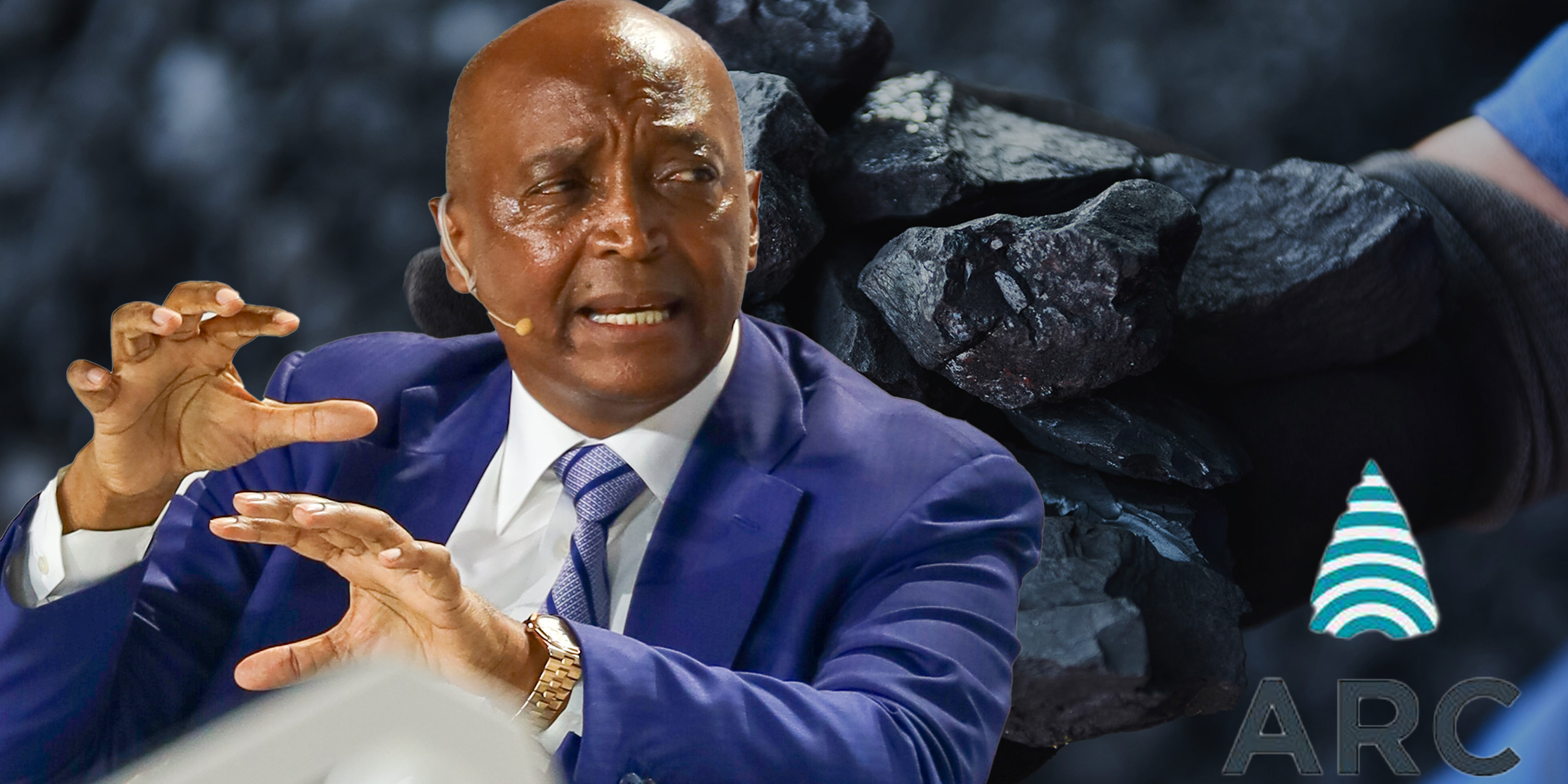When African Rainbow Capital (ARC) issued a SENS statement on 18 March 2025 announcing its intention to delist from the Johannesburg Stock Exchange and A2X, the message was clear: the move was reportedly about streamlining costs and correcting a mismatch between market value and actual asset worth.
Several thousand kilometres to the north in Tanzania, that announcement sent alarm bells ringing.
There, ARC and its affiliates — including African Rainbow Minerals (ARM), ARCH Sustainable Resources GPCo, and Motsepe himself — are facing a $195-million (about R3.6-billion) lawsuit brought by US-based investment firm Pula Group.
The timing of ARC’s delisting, Pula alleges, is far from incidental.
Judgment day approaches
The Tanzanian High Court has taken the matter seriously. After ARC and several co-defendants failed to appear in court in December 2023, Pula applied for a default judgment.
A default judgment is a legal ruling made in favour of one party when the other fails to respond or appear in court.
ARC and its co-defendants argued that they had been improperly served — a claim the court rejected on 12 July 2024.
As a result, the Commercial Court of Tanzania is set to hear the case on 7 May 2025. The hearing comes just weeks before ARC’s expected exit from the JSE and A2X, scheduled for early June.
A neighbour too close for comfort
Initially filed in November 2023, the lawsuit accuses ARC and its affiliates of breaching a confidentiality and non-compete agreement over a graphite project in Tanzania’s mineral-rich Ruangwa District.
It accuses the companies of using privileged information shared by Pula to back a competing graphite venture, Evolution Energy Minerals.
Read more: Africa’s critical minerals are key to the global net zero transition
In its 2024 annual report, Evolution describes ARCH as the company’s “cornerstone investor” with a 24.7% interest in the company. “Out of more than 50 graphite projects in Africa that ARCH could have invested in, they decided to invest in the project adjacent to Pula’s graphite operations,” Ambassador Charles Stith, executive chairman of Pula Group, said.
The fallout, Stith claims, was strategic. “The delisting has profound financial implications and significantly affects the profile of ARC,” he added. “[Pula] submitted to the court that the delisting materially affects that status quo.”
No comment, no clarity
ARC declined to respond to Daily Maverick’s queries about the lawsuit or its delisting. Nor has it publicly commented on the pending mediation process ordered by the Tanzanian court.
Read more: Patrice Motsepe’s African Rainbow Capital wants a bigger slice of the growing fintech pie
ARM only responded that it is not in a position to comment as the matter is currently before the Tanzanian court.
ARCH, for its part, denied any wrongdoing or obligation. “[ARCH] was not a party and has no obligations to Pula pursuant to the terms of the confidentiality agreement,” the company said in a written statement.
It further stressed that it “did not receive any confidential information on the Pula Graphite Project from ARM.”
ARCH did, however, confirm the basics of the dispute. “ARM concluded a confidentiality agreement with [Pula] to consider a potential investment in the Pula Graphite Project,” it said. “We understand that ARM subsequently did not proceed with the proposed investment.”
Graphite, power, and precedent
At stake is a resource increasingly coveted by battery manufacturers and governments alike: graphite.
Tanzania’s Ruangwa District is home to some of the world’s top-ranked graphite deposits, and Pula holds four licences in the area.
The group told Daily Maverick that it had hopes of the lawsuit setting a precedent in protecting the rights of Tanzanian mining companies competing against international counterparts.
“Seventy percent of mineral exploration in Tanzania is conducted by Australian and Canadian companies,” Pula said in a press advisory statement in November 2024. “It is the unfair, prejudicial, and predatory practices of companies like ARM and Motsepe’s associated companies that perpetuate the disparity in the mining sector.”
How does this affect you?
ARC’s delisting may seem like a distant boardroom decision, but its implications ripple far beyond Sandton.
For Africans invested in ARC, delisting means reduced transparency and fewer investor protections.
Meanwhile, the Pula lawsuit raises questions about how South African firms conduct business across borders and the potential legal fallout when deals sour.
If local companies can quietly pull back from public accountability while facing serious legal claims abroad, it sets a precedent that chips away at corporate transparency.
A delisting with baggage
ARC’s reasons for delisting, detailed in its most recent circular to shareholders, centre on cost, tax inefficiencies and low market liquidity.
Read more: SA’s public markets show promising signs despite delisting concerns
It also noted that its international fundraising ambitions via a Mauritian structure failed to materialise, and that nearly all shareholders were South African.
ARC may be preparing its corporate exit, but for now, the courtroom in Dar es Salaam might be the only place it can’t quietly walk away from. DM





